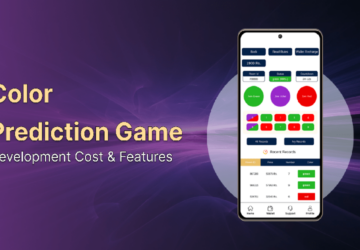In an increasingly competitive world, individuals are constantly searching for ways to distinguish themselves and attain their objectives. One potent tool in this endeavour is aptitude assessment. Aptitude assessments are instruments designed to gauge an individual’s inherent abilities and potential in various domains, including cognitive, emotional, and practical skills. These assessments hold immense value for personal development, career advancement, and educational pursuits.
The journey of unlocking potential
Before delving into effective strategies, it’s imperative to grasp the fundamental concept of aptitude assessments and their operational principles. Aptitude assessments serve as instruments for evaluating an individual’s natural talents and capabilities, encompassing a broad spectrum, including cognitive aptitudes, emotional intelligence, practical proficiencies, and personality traits. These assessments find application in diverse settings, including educational institutions, workplaces, and programs geared toward personal growth. They serve multiple functions, such as providing career guidance, aiding in employee selection, and fostering self-discovery.
With a foundation in understanding aptitude assessments, it’s crucial to explore the significance they hold in the realm of personal and professional development. Aptitude assessments provide data-backed insights that facilitate informed decision-making concerning career choices, educational pursuits, and life decisions. By gaining insights into one’s strengths and weaknesses, individuals can make choices that harmonise with their innate abilities. Furthermore, these assessments cultivate self-awareness, a pivotal element in personal growth, by unearthing facets of one’s character that might otherwise remain hidden. Armed with knowledge about their aptitudes, individuals can set realistic and fulfilling goals, which, in turn, ignites motivation and purpose. In the professional sphere, aptitude assessments can prove transformative, positioning individuals for career progression and success.
What are the various strategies that help to empower your abilities?
Now that the importance of aptitude assessments is evident, let’s delve into strategies that can empower individuals to unlock their potential through these assessments.
Select the Right Assessment:
Choosing the appropriate assessment tool marks the initial stride in harnessing your potential through aptitude assessment. With a variety of assessment types available, it is paramount to select one that aligns with your objectives. For those aiming to gauge cognitive abilities, IQ tests or cognitive aptitude tests are more apt choices.
Prepare Effectively:
Effective preparation forms the cornerstone of success in aptitude assessments. Commence your journey by acquainting yourself with the assessment’s format and the types of questions likely to be encountered. Many aptitude assessments offer practice tests, a valuable resource for honing your skills. Dedicate time to consistent study and practise leading up to the assessment.
Seek Professional Guidance:
For individuals utilising aptitude assessments for career guidance or personal development, consulting with a qualified professional can offer invaluable insights. Career counsellors or psychologists can help you comprehend your results within the context of your goals, providing guidance that can shape your path forward.
Reflect on Your Results:
Following the completion of an aptitude assessment, allocate time for reflection upon the results. Consider how your strengths and weaknesses correlate with your present circumstances and future aspirations. Such introspection can provide clarity and direction, guiding you toward decisions aligned with your aptitudes. Remember that aptitude assessments represent one facet of your capabilities. Avoid restricting yourself to a narrow interpretation of your results. Embrace the diversity of your aptitudes and explore how they can be applied in various aspects of your life. Often, innovative solutions emerge from the fusion of seemingly unrelated skills.
Set SMART Goals:
Grounded in your aptitude assessment results, establish SMART (Specific, Measurable, Achievable, Relevant, Time-bound) goals. SMART goals provide a structured framework for translating insights into actionable steps. For instance, if your assessment highlights strong analytical abilities, you might set a goal to pursue a career path reliant on analytical thinking.
Commit to Continuous Learning and Improvement:
Aptitude assessments are not static; they merely serve as a starting point for ongoing growth. Should you wish to fortify certain aptitudes, seek opportunities for advancement, whether through formal education, training programs, or consistent practice.
The power of collaboration and networking
Collaboration and networking can play a significant role in unlocking your potential. Engage with individuals who share your interests and passions, especially those who excel in areas that align with your aptitudes. By connecting with mentors and peers, you can gain valuable insights, access new opportunities, and receive guidance on your journey of growth.
It’s crucial to celebrate your successes along the way. Achieving your goals and realising your potential through aptitude assessments is a remarkable accomplishment. Recognize your achievements, no matter how small they may seem, as they are milestones on your path to success. Celebrating these victories can boost your motivation and reinforce your commitment to ongoing self-improvement.
Furthermore, as you work on improving your performance through various types of aptitude tests, it’s essential to maintain a growth mindset. This mindset involves embracing challenges, seeing failures as opportunities for learning, and believing in your ability to develop and grow. A growth mindset fosters resilience and a willingness to persevere in the face of obstacles, both of which are crucial for unlocking your potential.
Another crucial element in the process of realising your potential through aptitude assessments is adaptability. Life is dynamic, and circumstances change. Your goals, interests, and priorities may evolve over time. Therefore, it’s essential to revisit your aptitude assessments periodically. As you grow and learn, your aptitudes may also change or become more refined. Regularly updating your assessments can help you stay aligned with your current path and aspirations.
Conclusion
In conclusion, unlocking your potential through aptitude assessment is not a one-time event; it’s an ongoing process that involves self-discovery, development, and adaptability. By continually striving to improve your skills and embracing a growth mindset, you can leverage your innate abilities to achieve personal and professional success. Stay open to new opportunities, seek guidance when needed, and remember to celebrate your progress along the way. Your journey toward realising your full potential is a rewarding one, and with dedication and determination, you can continue to grow and evolve throughout your life. To get more detailed information on this, please visit Mercer | Mettl.








